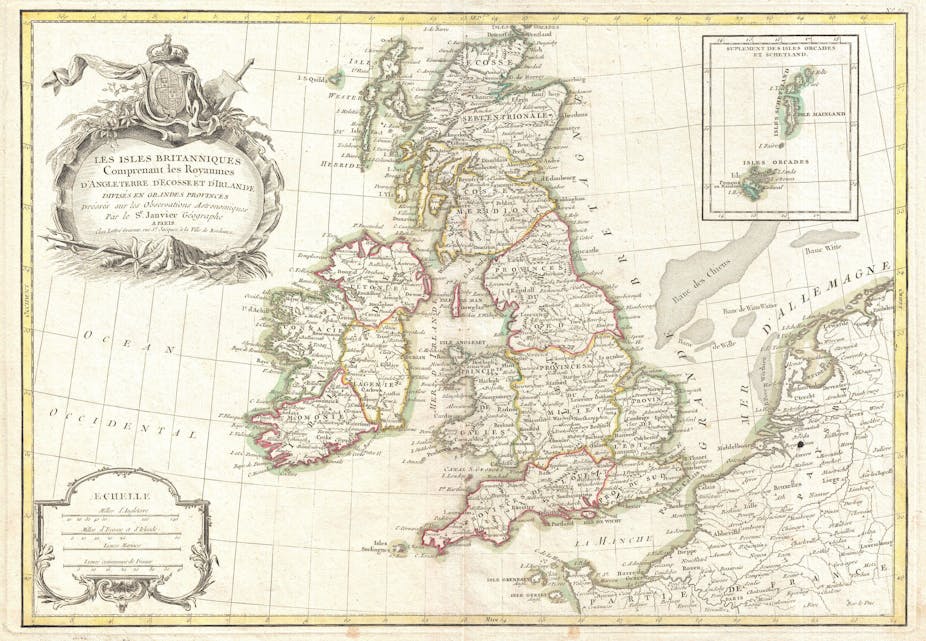Adam Smith may be the poster-boy for the modern “free market,” but his work was also deeply racist. The structure of his famous Wealth of Nations (1776) – the “Bible” of capitalism – relies upon the contrast between “savage” and “civilised” nations. In its opening sentences, he writes:
Such nations, however, are so miserably poor, that, from mere want, they are frequently reduced […] to the necessity sometimes of directly destroying, and sometimes of abandoning their infants, their old people, and those afflicted with lingering diseases, to perish with hunger, or to be devoured by wild beasts. Among civilised and thriving nations, on the contrary […] the produce of the whole labour of the society is so great, that all are often abundantly supplied, and a workman, even of the lowest and poorest order, if he is frugal and industrious, may enjoy a greater share of the necessaries and conveniences of life than it is possible for any savage to acquire.
The endless pages that follow this statement seek reasons why those “civilised” nations have achieved wealth, while the “savage” nations have not.
“Savage” peoples

The “savage” peoples are numerous indeed, characterised by consistent racial insults.
The ancient Peruvians and Mexicans were “in arts, agriculture, and commerce […] more ignorant than the Tartars of the Ukraine are at present”.
Further, “the ancient arts of Mexico and Peru have never furnished one single manufacture to Europe”.
The list grows quickly, including Turkey and Indostan. To these he adds ancient Egypt, “Mahometan” nations, the Arabs, Africa, the West Indies, Persia, Bengal, Siam, China, and North American indigenous peoples, who comprise “the lowest and rudest state of society”.
In the end, the whole world apart from Europe is characterised as “savage” and “barbaric”. Even then, he often characterises the otiose French or brutal Dutch in less than glowing terms.
From where does Smith gain all this information? Travellers’ tales are a major source, with their lurid and overblown creations of excess. But when he is short of even this unreliable material, he relies on nothing more than an “I believe”.
China
Nonetheless, China presents a problem for Smith. He is aware that China was still more populous, powerful and wealthy than Europe. What to do?
While Smith occasionally paid lip-service to this impression, he also suggests that China was not as good as it seemed. China was actually stagnant. Its great age was no longer seen as a benefit, a source of wisdom and wealth far deeper than that of Europe. Now stability becomes what is dull, boring, and melancholy.
China lacks any sense of progress or modernity, and then Smith goes a step further:
The poverty of the lower ranks of people in China far surpasses that of the most beggarly nations in Europe. In the neighbourhood of Canton many hundred, it is commonly said, many thousand families have no habitation on the land, but live constantly in little fishing boats upon the rivers and canals. The subsistence which they find there is so scanty that they are eager to fish up the nastiest garbage thrown overboard from any European ship.
Any carrion, the carcase of a dead dog or cat, for example, though half putrid and stinking, is as welcome to them as the most wholesome food to the people of other countries. Marriage is encouraged in China, not by the profitableness of children, but by the liberty of destroying them. In all great towns several are every night exposed in the street, or drowned like puppies in the water. The performance of this horrid office is even said to be the avowed business by which some people earn their subsistence.
The echo of the ethnocentric bifurcation that opens Wealth of Nations is strong, except that now it is raised to an even more horrifying degree – the streets and rivers are full of dead babies, since some people earn their living through this practice. For Smith, China is more than “savage”.
Structural Racism
The structural racism of Wealth of Nations creates a distinct problem.
Smith liked to think that it was human nature to engage in commerce, to be entrepreneurial and seek profit through self-interest. How then does he account for the fact that most of history and most human societies have not operated in such a fashion? It must be due to ethnic peculiarities.
The Chinese, Arabs, and Africans are simply too barbaric and savage to have yet realised their own true nature as economic beings. Or perhaps they are not human at all.
After all, opines Smith, do they not engage in exposing their children, ban commerce with other nations, desire stagnation rather than progress, even lack the most basic of human virtues?
This is the last in a series of three articles by Roland Boer on Adam Smith. See also:

